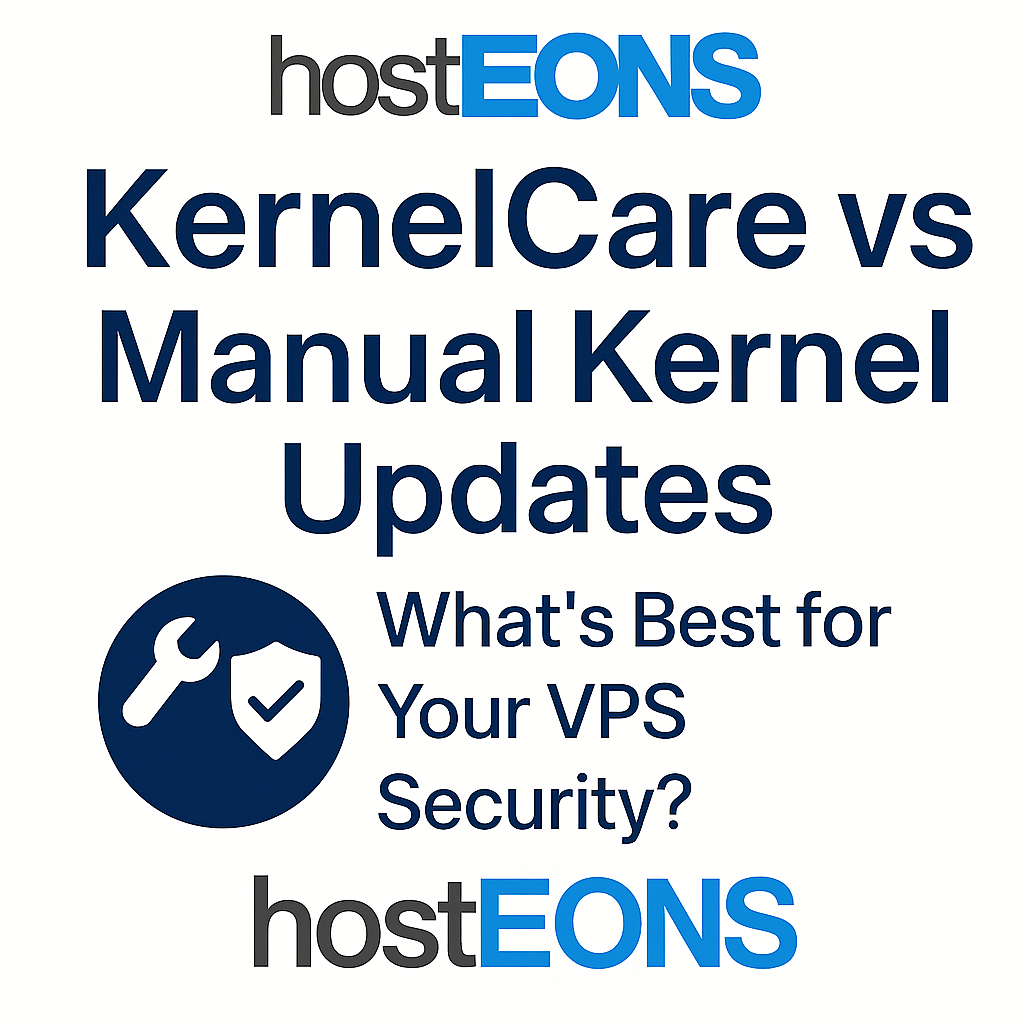
When it comes to securing your VPS, keeping the Linux kernel up to date is one of the most critical but often overlooked tasks.
At HostEONS, we’re frequently asked:
Should I use something like KernelCare or stick with manual kernel updates?
Here’s a clear breakdown to help you decide what works best — especially if you’re managing your own VPS.
🔧 What Is KernelCare?
KernelCare is a live patching service for Linux systems. It applies security updates to the kernel without requiring a reboot, making it perfect for environments where uptime is essential.
Benefits include:
- 🔄 Automatic patching of kernel vulnerabilities
- ⏱️ No downtime or reboot required
- ☁️ Ideal for high-availability or production systems
🔁 What Are Manual Kernel Updates?
Manual updates are the traditional way of updating your Linux kernel:
- Check for kernel updates (yum, apt, etc.)
- Install updates
- Reboot to apply the new kernel
While it’s free and gives you full control, there are trade-offs.
Pros:
- 💰 No additional cost
- 🧰 Ideal for non-critical or dev environments
- 🔍 Full visibility over what’s being installed
Cons:
- ⚠️ Requires scheduled reboots
- 🕒 Vulnerable during the patch gap
- 🔁 Easy to forget if not automated
⚔️ KernelCare vs Manual Updates – A Quick Comparison
| Feature | KernelCare | Manual Updates |
|---|---|---|
| Reboot Required | ❌ No | ✅ Yes |
| Setup Effort | ✅ Minimal | ⚠️ Moderate |
| Ideal Use Case | 24/7 live systems | Development or staging VPS |
| Cost | 💲 Paid service | ✅ Free |
| Downtime Risk | ❌ Zero | ⚠️ Possible downtime |
🏆 What Does HostEONS Use?
While we don’t offer KernelCare as an addon for VPS customers, we do use KernelCare internally on our shared hosting infrastructure.
Why? Because it lets us:
- Maintain 100% uptime on shared servers during security updates
- Keep customers safe without surprise reboots
- Respond faster to critical kernel vulnerabilities
🔐 What Should VPS Users Do?
Since HostEONS VPS plans are unmanaged, kernel security is your responsibility. We recommend:
- Use Manual Updates if you’re comfortable managing reboots and scheduling updates
- Set Reminders or use tools like unattended-upgrades (for Debian/Ubuntu) or yum-cron (for CentOS)
- Always reboot after a kernel update to stay protected
🧠 Bonus Tip
If you’re running mission-critical apps on your VPS and want live patching, you can install KernelCare yourself. It supports most mainstream distros and is easy to manage — just make sure to review the licensing and fees on their official site.
💬 Final Thoughts
There’s no one-size-fits-all answer, but the key is not to skip kernel updates. Whether you patch manually or use a service like KernelCare, staying updated protects you from vulnerabilities that attackers love to exploit.
🖥️ VPS Hosting by HostEONS:
- Budget VPS: https://hosteons.com/kvm_vps.php
- Ryzen VPS: https://hosteons.com/ryzen_premium_vps.php
- VDS (7950X): https://my.hosteons.com/store/ryzen-7950x-based-hybrid-dedicated-server